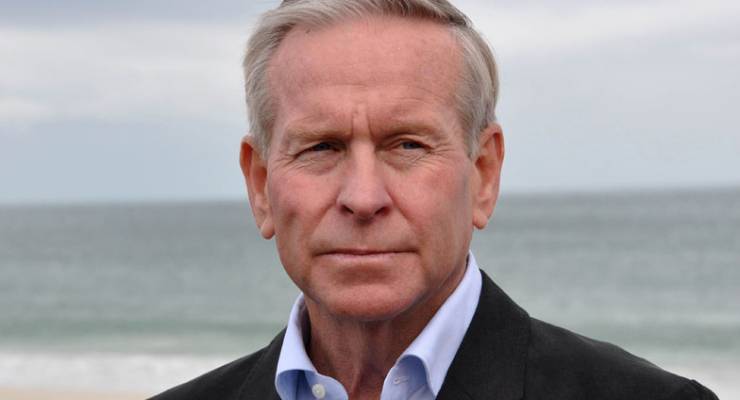
Almost eight years to the day after it began, the premiership of Colin Barnett is tottering following the resignation of two cabinet ministers over the weekend, with a spill motion to follow at a party room meeting Monday.
Barnett’s fortunes have been in decline since shortly after his landslide re-election in March 2013, when the Liberals hit the peak of their electoral cycle just as support for the federal Labor government reached its lowest ebb.
Before the year was out, Newspoll found Barnett’s approval rating had crashed from 51% at the time of the election to 34%, while his disapproval had shot from 36% to 54%.
As noted by psephologist Kevin Bonham, the net approval rating of -20% suggested Barnett had little chance of leading his party to a third victory, to the extent that historical precedent offered any guide.
The loss of the government’s triple A investment status from Standard and Poor’s, shortly before the poll was conducted, set the tone for the rest of the term, with each subsequent budget illustrating the government’s failure to have prepared for the downturn that predictably followed the investment phase of the mining boom.
In happier circumstances, the public might have been persuaded that the government’s financial difficulties resulted from its efforts to meet the infrastructure challenges arising from unprecedented population growth in Perth, together with the demands of the mining boom (to say nothing of the ongoing bugbear of the state’s share of GST revenue).
[ReachTEL: 51-49 to Labor in Western Australia]
However, such arguments were undermined by the government’s abandonment of public transport projects promised during both the 2008 and 2013 election campaigns.
As well as hitting hardest in the outer suburbs, where elections are typically won and lost, these issues dovetailed neatly with Labor’s long-term efforts to associate itself with expansion of the Perth rail network.
Meanwhile, questions over the Liberal leadership succession mounted as Barnett entered his late 60s.
In May, Barnett mused, fatalistically, over his chances of making it to the election, noting that the public might naturally have grown tired of a politician who had been either leader or deputy leader of his party at every election since 1993.
Barnett’s own plan was to smooth the path to a post-election leadership transition to the Police Minister, Liza Harvey.
Harvey was promoted to Deputy Premier in February, with a view to giving the government an image makeover while allowing her more opportunities to boost her profile during the election campaign.
Increasingly though, Barnett’s position came to be undermined by a combination of personal hostilities and concerns over his electoral standing.
The tempo quickened a month ago when Brendon Grylls, who had relinquished the Nationals leadership for a quieter life in November 2013, succeeded in winning his old job back after telling his party room that Barnett was leading the government to defeat.
This was followed by the circulation of polling commissioned by a Perth businessman which showed Labor on course to win all but one of 11 Liberal-held metropolitan seats surveyed, on the back of a decisive overall swing of around 10%.
Matters came to a head with the resignation of Local Government Minister Tony Simpson on Friday evening, followed a day later by the Transport Minister, Dean Nalder, who announced the fact by providing an exclusive to Perth’s Sunday Times newspaper. Neither had given Barnett prior warning.
Nalder’s leadership ambitions have long been an open secret, despite his unspectacular record as a minister, and his intention to nominate was confirmed at a doorstop interview Saturday afternoon.
[Return of the chair sniffer? How Barnett screwed it up so badly]
Awkwardly for Nalder, his resignation came on the very day that a ReachTEL poll in The West Australian indicated that the government’s position, while difficult, was by no means irretrievable.
Worse still, the poll confirmed what was obvious to any observer of state politics in finding no appetite for Nalder to take Barnett’s place.
A question on preferred Liberal leader found Barnett leading the field with 44.8% and Liza Harvey second on 30.6%, while Nalder rated last out of five options on 5.5%.
Barnett might very well be wondering how different things might be if his colleagues had held their nerve and kept their ambitions in check.
As things stand, Liza Harvey declined an opportunity this past weekend to rule out nominating for the leadership in the event that today’s spill motion succeeds, suggesting Nalder’s manoeuvre might at least achieve its negative objective of forcing out Barnett.
The only alternative now is for Barnett to lead a disunited party into an election campaign against a Labor machine that has an entrenched and popular leader in Mark McGowan, and stands to have its ranks bolstered with the looming return to state politics of popular former minister Alannah MacTiernan.








Crikey is committed to hosting lively discussions. Help us keep the conversation useful, interesting and welcoming. We aim to publish comments quickly in the interest of promoting robust conversation, but we’re a small team and we deploy filters to protect against legal risk. Occasionally your comment may be held up while we review, but we’re working as fast as we can to keep the conversation rolling.
The Crikey comment section is members-only content. Please subscribe to leave a comment.
The Crikey comment section is members-only content. Please login to leave a comment.